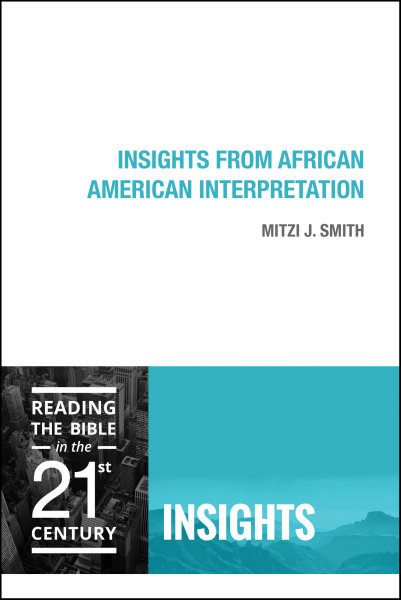"Mitzi Smith ably traces the arc of African American biblical interpretation. She extends that arc with her own contributions, interpreting passages from both Testaments. She reintroduces the reader to parables rooted in the atrocity of slavery, lays their brutality bare, and interprets them through the experience of African Americans. She does this while bringing postcolonial and social political theory to bear resulting in a text that critically reassess the utility of master/slave and kingdom rhetoric as religious, Christian language, particularly in congregational contexts. Her work on the Levite's tortured and butchered low-status wife offers a powerful analysis of the dehumanizing "dismembering" that results in trafficking, domestic, sexual, and institutional violence."
Each volume in the Insights series discusses discoveries and insights gained into biblical texts from a particular approach or perspective in current scholarship. Accessible and appealing to today’s students, each Insight volume discusses how this method, approach, or strategy was first developed and how its application has changed over time; what current questions arise from its use; what enduring insights it has produced; and what questions remain for future scholarship.
Mitzi J. Smith describes the distinctive African American experience of Scripture, from slavery to Black Liberation Theology and beyond, and the unique angles of perception that an intentional African American interpretation brings to the text for a contemporary generation of scholars. Smith shows how questions of race, ethnicity, and the dynamics of “othering” have been developed in African American biblical scholarship, resulting in new reading of particular texts. Further, Smith describes challenges that scholarship raises for the future of biblical interpretation generally.
- Publisher Fortress Press
- Format Paperback
- ISBN 9781506400174
- eBook ISBN 9781506401133
- Dimensions 6 x 9
- Pages 154
- Publication Date May 1, 2017
Contents
Table of Contents
Samples
Reviews
Reviewed in New Testament Abstracts 61.2 (2017)
Endorsements
A text that critically reassess the utility of master/slave and kingdom rhetoric as religious language, particularly in congregational contexts
You’ll know more about ancient history and about the importance of the Bible for Black Lives Matter after reading this book.
“This book is a rich introduction to the history of the use of the Bible by and in relation to those of African descent, an excellent introduction to African American biblical hermeneutics, and an up to date survey of womanist interpretation. In lucid prose, it helps us to understand the Bible—with all its visionary and all its problematic texts—in a new light. You’ll know more about ancient history and about the importance of the Bible for Black Lives Matter after reading this book.”
Interrogates and nuances the fierce power, imagination, complexity, and resilience of African American Biblical Interpretation through the centuries
“Mitzi Smith’s Insights from African American Interpretation, provides more than banal insights about this historic, vitalizing, and enduring discipline. Smith fixes with precision the debt all biblical scholars owe to generations of Black peoples who have wrestled with the meaning and power of the Bible—the “Talking Book” —for their lives. Her agile compendium of essays rigorously interrogates and nuances the fierce power, imagination, complexity, and resilience of African American Biblical Interpretation through the centuries. Erudite, absorbing, and disciplined, Smith’s analysis situates and problematizes major theoretical shifts in African American hermeneutical approaches within their discrete historical contexts and matrices, inclusive of postcolonial criticism and theories, womanist criticism and theorizing, critical race theory, and cultural studies approaches, among others. Must-read for specialists and experts interested in mapping and theorizing the transgressive and transformational power and iterations of race, culture, and community in sacred narratives.”
